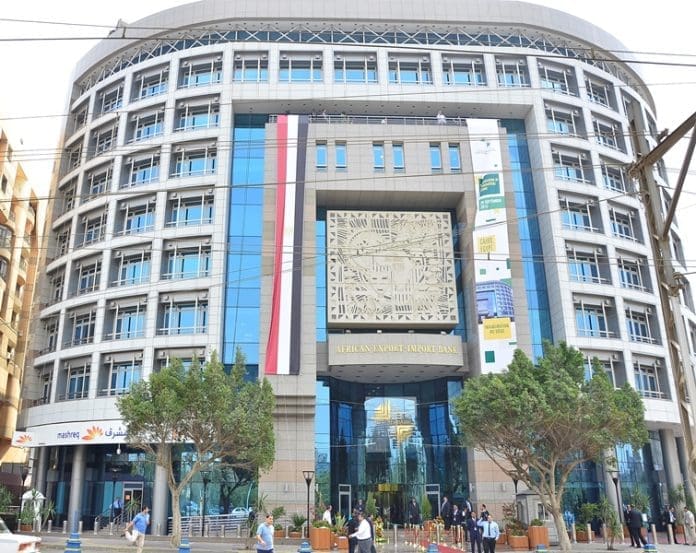African Export-Import Bank (Afreximbank) has signed a $100 million facility agreement with NBS Bank Plc Malawi to boost the bank’s trade finance portfolio and strengthen its capacity to meet the import needs of Malawian businesses.
The agreement, signed on the sidelines of the Intra-African Trade Fair 2025 (IATF2025) in Algiers, was formalized by Haytham El Maayergi, Executive Vice President for Global Trade Bank at Afreximbank, and Temwani Simwaka, Chief Executive Officer (CEO) of NBS Bank. The facility will support importation of essential commodities including fertilizer, medicines, and fuel.
“This $100 million facility is among the largest limits for AFTRAF for a bank in Malawi,” El Maayergi said. “It demonstrates Afreximbank’s commitment to supporting Malawi’s trade aspirations as one of its member states. It also demonstrates the good and long-term relationship that exists between Afreximbank and the NBS/NICO group.”
The significance lies partly in scale. Malawi’s import-dependent economy faces chronic foreign exchange constraints that limit private sector access to trade finance. A facility this size provides meaningful capacity for a mid-tier bank to expand lending to importers who’ve struggled to secure financing for essential inputs.
El Maayergi explained the funding will enable NBS Bank to “support the growing trade needs of its customers which are aimed at supporting and increasing trade volumes for strategic commodities in Malawi, notably the importation of fuel, fertilizer and pharmaceuticals.” He added it would “provide the bank with a confirmation line from within Africa.”
That last point matters more than it might appear. Many African banks struggle to obtain trade confirmations from international correspondent banks, forcing them to route transactions through expensive intermediaries or limiting their ability to serve clients altogether. An intra-African confirmation line reduces those frictions.
The Afreximbank Trade Facilitation Programme (AFTRAF) is designed to enhance counterparties’ confidence in international trade settlements, improve correspondent banking relationships, and provide confirmation services and guarantees. By supporting critical imports and enabling financing for export-related production, the program also aims to boost intra-African trade.
For Malawi specifically, the facility addresses acute needs. The country faces persistent fertilizer shortages that undermine agricultural productivity, fuel supply disruptions that cascade through the economy, and pharmaceutical imports essential for public health. When trade finance becomes scarce, these strategic commodities become either unavailable or prohibitively expensive.
NBS Bank, part of the larger NICO Group, represents one of Malawi’s more aggressive commercial lenders. The bank has been expanding its corporate and commercial client base, but growth has been constrained by limited access to affordable foreign currency lines. This Afreximbank facility changes that calculation significantly.
El Maayergi stressed the initiative aligns with Afreximbank’s broader mandate of supporting intra- and extra-African trade. “This facility was a demonstration of Afreximbank’s commitment to support indigenous African businesses and financial institutions to meet national needs,” he said.
It’s worth noting this represents the second major agreement between NBS Bank and Afreximbank this year. In July, the institutions signed a Joint Project Preparation Facility Framework Agreement to provide early-stage financing and technical assistance for projects in energy, manufacturing, logistics, tourism, healthcare, and creative industries. Together, these agreements position NBS Bank as a key partner for Afreximbank’s Malawi strategy.
The timing coincides with IATF2025, which attracted over 112,000 visitors from 132 countries and featured 2,148 exhibitors. Trade and investment deals worth $48.3 billion were signed during the week-long event, making it Africa’s largest trade gathering.
Whether NBS Bank can efficiently deploy this facility depends on several factors: Malawi’s foreign exchange availability, demand from creditworthy importers, and the bank’s internal capacity to manage significantly expanded trade finance operations. The facility provides ammunition—actually hitting targets requires execution capability that not all African banks demonstrate consistently.
For Malawian importers, though, the announcement represents tangible relief. Businesses that have struggled to secure letters of credit or trade guarantees now have access to a bank with substantially expanded capacity. Whether that translates into lower costs or just improved availability remains to be seen, but in Malawi’s constrained trade finance environment, availability itself represents progress.
Source: newsghana.com.gh











